By Berny Chaimite, HPC Administrator and Scientific Support at MoRENet (Mozambique Research and Education Network)
When I first heard about the opportunity to attend the annual Supercomputing Conference, SC22, as part of the Southern African Development Community (SADC) High Performance Computing (HPC) Ecosystems delegation, I let my doubts take over. I never imagined that the arrangements could be made in time. It was my first time on a plane – from Mozambique to the U.S.! Crazy, right? I told myself – “you have never traveled outside Mozambique, you don’t have a passport, and your English skills are weak. No, this opportunity is not for you, maybe next year.”
After a few weeks, Bryan Johnston from the South African Centre for HPC (CHPC) informed me that I was eligible for a STEM-Trek travel award that would make it possible for me to attend the EarthSci@SC22 workshop and participate in SC22. That motivated me, but I still didn’t believe it. Because I have never gone on a trip before. Bryan insisted, “Berny, it’s possible to process your U.S. visa in 8 days in Maputo.” Elizabeth Leake from STEM-Trek sent an invitation letter and offered a full tech program registration (with workshops and tutorials), sustenance and Dallas lodging.
I started to organize my documentation, passport, Covid-19 vaccination certificate, and asked my superiors at MoRENet if they would cover the cost of my flight – they said yes! My colleague, Vitalina Baptiste, who worked with me at MoRENet, and Prof. Genito Maure, who is my advisor at Eduardo Mondlane University, offered tips about international travel, because they have been to the U.S. where they attended SC in the past.
We learned that the Maputo embassy system that schedules interviews had a bug, so we had to travel to the Eswatini U.S. embassy to process my visa. I had already given up, but Vitalina encouraged me to take the trip to Eswatini (~225 km/140 miles from Maputo). To our delight, everything worked out, the ambassador understood the urgency and purpose of the trip, and the visa was ready in 24 hours. So, my first trip EVER out from Mozambique was to make arrangements for my first intercontinental trip! It was the greatest experience of my life in this world of science and technology; a dream come true for me and my parents.
My interest in HPC started when I was writing my dissertation for undergraduate studies in Meteorology at Eduardo Mondlane University; that is where I met Professor Maure, my advisor. The scope for my academic work was to evaluate the radiative forcing impacts of aerosols derived from biomass burning over the Niassa Reserve in north Mozambique using a state-of-the-art climate-aerosol model, with the application WRF-Chem. At that time, Mozambique didn’t have the computational power needed to create this model, but my advisor had a principal investigator account on the Lengau supercomputer at the South African CHPC, and he requested an account for me. But I confess, I had very little experience with Linux (almost none), or how to use remote computing resources. It was an interesting journey! With Dr. Maure’s help, and lots of practice, I learned the skills I needed to not only use, but to support an HPC cluster.
These skills have come in handy. When Mozambique received its African HPC Ecosystem cluster, there was no one to install and test applications. For this reason, I received an invitation from MoRENet (upon the recommendation of Dr. Maure) to be part of the country’s first HPC group. It was my job to deploy software (climate simulations and analysis tools) and help others use the HPC Ecosystem with clusters in a dozen data centers in the SADC region (17 countries in sub-Saharan Africa). Vitalina and I joined in 2019 as junior administrator interns, with Lino Khalau, a senior manager. That year, CHPC invited us to an OpenHPC workshop. From there, I learned about the physical configuration of hardware, and deployment of software to build and administer distributed computing clusters.
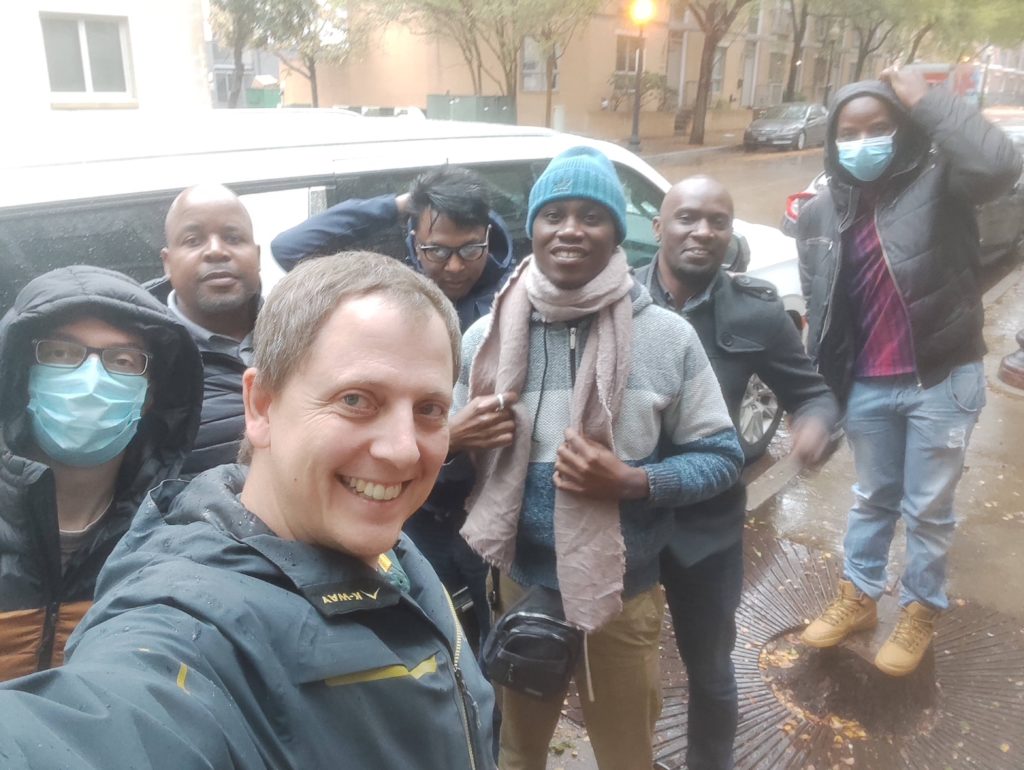
We made great strides between 2019-2020, but due to the covid-19 pandemic, we lost momentum. While my internship ended, I volunteered to continue developing the OpenHPC software stack on a few racks of the former U.S. NSF Stampede supercomputing cluster that was provided by the HPC Ecosystems project.
OpenHPC, and the availability of online training, made it easier to learn a range of modeling and data analysis tools. Today I aspire to broaden my horizons in this field; I would like to pursue postgraduate study in computational science so that I can continue to support the development and technological evolution in Mozambique. As a member of the first generation in Mozambique of professionals who support research with HPC, I’m very excited to be a pioneer who can help to catapult Mozambique research and discovery. I’ve learned that there are constant challenges and surprises in the HPC world. The people I met at SC22 are part of a global community of practice that help each other through the many day-to-day issues that arise.
Through its partnership with the South African CHPC, MoRENet has received two HPC clusters. However, as it is a new technology in the country, we have faced challenges with operation, uptake, and utilization. The academic research and professional community who deal with big data and modeling complex processes have little knowledge of the use of these resources. Therefore, I not only support systems, I train staff to be facilitators in all domains of science, in addition to systems administrators and managers. We wear many hats.
And there are gaps – we have limitations, since most of the things we know were experienced in practice, with remote help from the CHPC. Even so, we won’t give up. As an example, last October we challenged ourselves to carry out the first training on HPC for users in Mozambique. Vitalina and I, with Dionisio, and Martilio (new members of the MoRENet HPC Team since March), planned the training and invited specialists such as Professors Maure and Nehama, to share their experience with HPC resources, accessing remote clusters, using the software codes, and more.
The SC22 conference inspired new ideas, and an even greater commitment to the development of HPC services in Mozambique. It also enabled me to better understand what directions should be taken to grow our community of practice. The opportunity to meet other managers, technologists, and researchers involved in computer science from different countries was invigorating. It’s now easier for me to understand how advanced computational resources support industrial, commercial, scientific, academic, and government objectives for growth and prosperity.
Many thanks to all who encouraged me and supported this journey!
______________________________________________________________
Note: Berny traveled for 21 hours each way to and from Mozambique through Addis Ababa, Dublin, Chicago, Washington DC and Dallas. He wins the prize for having traveled the furthest!
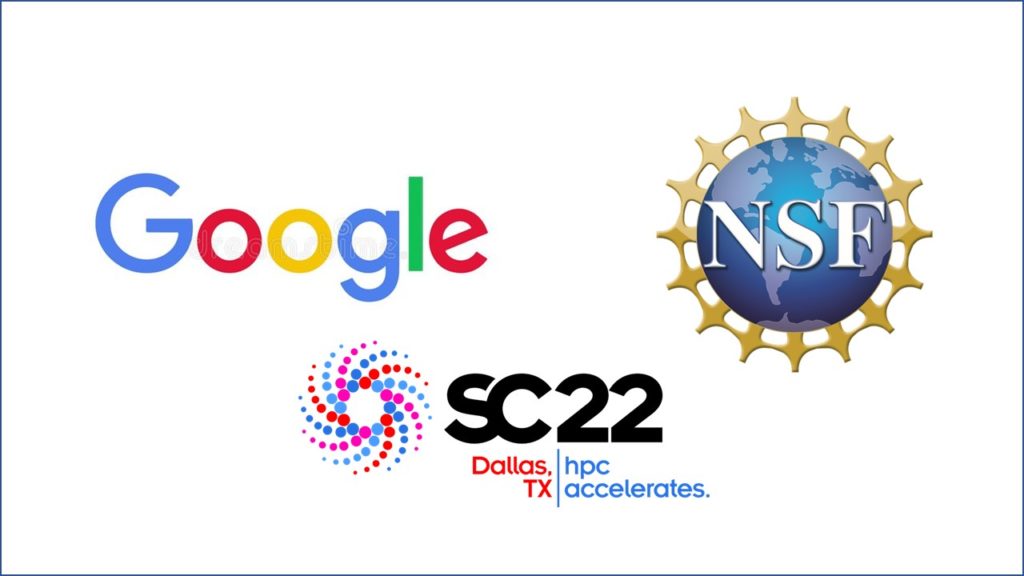

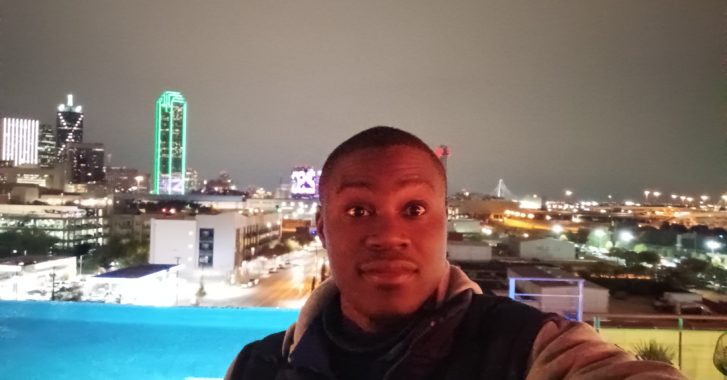

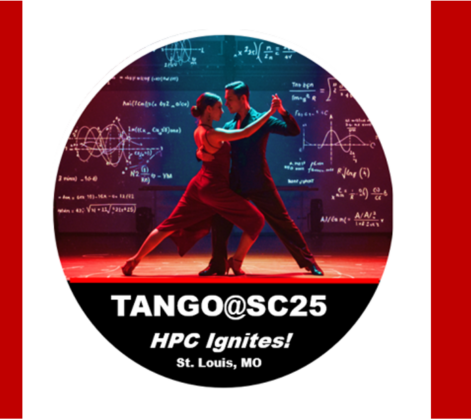
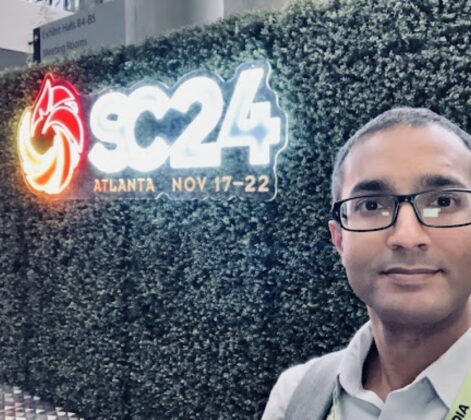

This is awesome and incredible. Keep going on doing well.